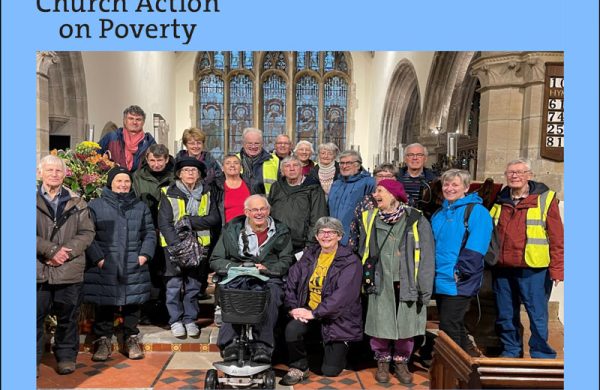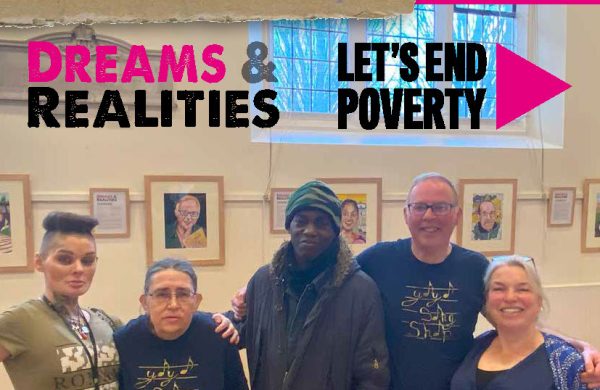Gathering on the Margins – 9 June
This week we looked beyond the UK and talked about how we can stand in solidarity with people around the world, and what we can learn from approaches to tackling poverty in other countries.

We have these gatherings every Tuesday at 2 pm. Join us on Zoom to connect with people across the country to hear each other’s stories, discuss issues that we are facing and share advice.
Join us on Zoom by clicking the link below, or call 0131 460 1196 and using the meeting ID: 193 697 232
Last year Penny and Ben visited America to speak at an event hosted by Why Hunger? While they were there they visited projects tackling poverty and food insecurity at a local level. Penny reflected on how what she saw there compared to the UK.
In North Carolina they visited plots of land where communities were growing their own food and sales of the surplus at farmers’ markets would go back into the community. Penny has been trying to promote community gardening programmes like this in her own community in Byker, but has found it difficult to get people involved. As Ben points out, in the UK things like farmers’ markets are associated with the privileged and is currently not as normalised or accessible for most of the community. However, we heard from other people in the gathering about community growing projects in Cornwall and London, so this does seem to be something that is taking off in some parts of the UK too.
While in America, Penny and Ben also visited a large foodbank in New York, which seemed to provide more support than foodbanks Penny had been to in Newcastle, but there was also a sense the reliance on foodbanks had become very normalised.
Ben also reflected that the people he met in America were much more open to talking about how issues of gender, race, sexuality, etc. intersected with issues of poverty than we are here, and that they were much better at having those kinds of conversations. The events of the last few weeks are making the importance of these conversations increasingly clear.
Charlotte Killeya told us about when she visited Youngstown, Ohio when researching steel-making communities and was struck by how well communities told their own stories, and included discussions of the intersection of race, class, gender on sexuality. Charlotte recommends these books on the topic:
Striking Steel, Solidarity Remembered by Jack Metzgar
Steel Town USA: Work and Memory in Youngstown by Sherry Lee Linkon and Jack Russo
It was not only America that we talked about. Gillian Dare reminded us that much of the poverty in many countries around the world is the result of the wealthiest countries. She highlighted the importance of making trade deals that do not trap people in poverty. On top of this, lockdown across the world has affected important international development projects and severely damaged the economies of the poorest countries in the world. It is therefore more vital than ever that we stand in solidarity with them and seriously consider how what happens in the UK has impact across the world.
Niall shared a video of theologian Anthony Reddie reflecting what the Church needs to do to show solidarity with the most marginalised during the pandemic, especially around issues of race and class. He talked about how Christianity itself, and many Church movements were originally about solidarity with the poor, but as those traditions have become more ‘respectable’ they replaced commitment to the poor for the middle class, meaning that people on the margins become invisible. The pandemic has shown how these people have been hidden, and now we need to respond by being in solidarity and get alongside the people whose stories we really need to hear.
Towards the end of the gathering we discussed where we are after almost three months of lockdown and what we would like to discuss in future gatherings. People raised concerns about what is happening as short-term measures that were put in place at the beginning of the pandemic, such as accommodating homeless people in hotels, are removed. Other issues that were raised included: how young people’s lives are being put on hold, income levels, diversity and how we build back better. Do come along to future gatherings where we will discuss these issues.
Next week we will be talking about campaigning and what Church Action on Poverty should be focussing on. If you have ideas you would like to share, or just want to be part of the conversation, please do join us.



